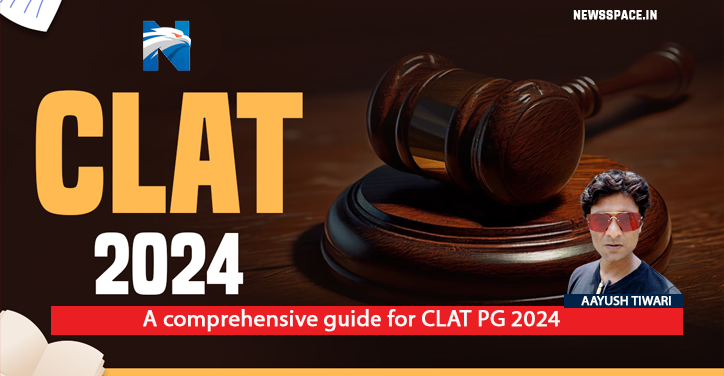
In the world of entertainment, artists play a crucial role in captivating the hearts and minds of the audience. Behind every John Bon Jovi and behind every Bryan Adams, there is a team of professionals working tirelessly to manage their untamed fame and ensure mutual profits. This team includes an artist manager, whose role is vital in shaping the artist’s career. An artist management contract governs the relationship between the artist and their manager, and it is essential for both parties to understand the legal implications of such a contract.
In the ‘Modi-fied’ India(2014 -present), the artist management industry is rapidly growing like a crescendo, with more and more artists seeking professional management services this today captures the essence of the Law Week.
Our legal team is propelled to write on this as the lack of awareness about the legalities of artist management contracts has led to complex disputes and and herculean controversies. Therefore, it is crucial to understand the legal provisions governing such contracts to ensure a fair and mutually beneficial relationship between the artist and the art ( drafting an artist management contract ).
The Indian Contract Act, 1872, is the primary legislation that governs all contracts in India, including artist management contracts. According to Section 10 of the Act, all contracts must have the essential elements of a valid contract, such as offer, acceptance, consideration, and intention to create a legal relationship. Therefore, an artist management contract must have these elements to be legally binding. This shall be explained briefly in part two of this series.
Apart from the Indian Contract Act, there are specific laws and regulations that govern the artist management industry in India. The Copyright Act, 1957, is one such legislation that artists and managers must be aware of. This act protects the rights of artists over their creative works, such as songs, lyrics, performances, etc. Therefore, an artist management contract must include clauses that protect the artist’s copyright and ensure that their work is not used without their consent. This is just a generic example to spontaneously shape the future bogs in this of managing world’s top notch artists.
Yes, in addition to the legal provisions, it is also essential to understand the concept of an artist management contract. It is a legally binding agreement between the artist and their manager, outlining the terms and conditions of their professional relationship. The contract typically covers areas such as the manager’s duties and responsibilities, the artist’s obligations, financial arrangements, and the duration of the contract.
To understand the concept better, let us take the example of the rock band Bon Jovi. The band’s lead singer, Jon Bon Jovi, signed an artist management contract with his manager, Jack Rovner, in 2005. The contract outlined that Rovner would receive 20% of the band’s earnings for a period of five years. It also stated that Rovner would be responsible for managing the band’s career, securing recording deals, and negotiating tour contracts. In return, Rovner would provide Jon Bon Jovi with guidance and advice on his career decisions.
The contract also included clauses that protected Jon Bon Jovi’s copyright over his songs and performances. It stated that Rovner would not use the band’s name or any of their creative works without their consent. The contract also outlined the financial arrangements between the band and their manager, ensuring that both parties were fairly compensated for their services.
In the case of Bon Jovi, their artist management contract was a success, and the band went on to achieve great success under Rovner’s management. However, this may not always be the case. It is crucial for artists to thoroughly understand the terms and conditions of their management contracts before signing them. They should seek legal advice if necessary to avoid any disputes or misunderstandings in the future.
So before we delve deeper into the artist management contract, it is crucial that this mesmerizing legal flair must get a first end touch first. It is essential for both parties to understand the legal provisions governing such contracts and ensure that the contract protects their rights and interests by understanding the possibility of anomaly with super success of the artist or the bankruptcy of the manager . By having a clear and comprehensive artist management contract, artists can focus on their creative work, while their managers can manage their career effectively.
In the Indian entertainment industry, artists rely heavily on artist management contracts to navigate their professional careers effectively. Drafting or understanding the legally binding agreements.
To illustrate the concept again, this time we will use a ‘fictio juris’ example of the renowned rock band, Bon Jovi once again.
So the body of a Sample Artist Management Contract:
- Parties Involved: The contract should clearly state the names and contact information of both the artist (Bon Jovi) and the management company. Additionally, any affiliated parties, such as attorneys or accountants, should also be identified.
- Term and Termination: The contract should specify the duration of the agreement, whether it is for a specific project or a mutually agreed-upon period. It should also outline the circumstances under which either party can terminate the contract, such as breach of terms or violation of the agreed obligations.
- Duties and Responsibilities: This section should outline the specific duties and responsibilities of the artist and the management company. It typically includes aspects such as booking shows, negotiating contracts, handling finances, marketing and promotion, and providing career guidance and advice.
- Financial Arrangements: One of the critical aspects of artist management contracts is the compensation structure. The contract should spell out how the artist will be paid, whether it’s a percentage-based commission on earnings, flat fees, or a combination of both. Additionally, provisions regarding the management company’s entitlement to expenses and advances should be addressed.
- Intellectual Property Rights: Artists need to protect their intellectual property rights in their music, including copyrights and trademarks. The contract should clearly delineate the ownership of the artist’s work and specify the power of the management company to handle licensing, royalties, and other related matters.
Relevant Legal Provisions:
- Contract Act, 1872: Indian contracts follow the principles laid down by this act. It is crucial to ensure that the artist management contract adheres to the requirements of a valid contract, such as offer, acceptance, and consideration.
- Copyright Act, 1957: This act protects artists’ original musical works. When signing an artist management contract, artists should ensure that it does not compromise their copyrights and that provisions are in place to handle licensing and distribution of their work.
- Indian Penal Code: In the event of a breach of contract (non-performance, unauthorized use of the artist’s name, etc.), provisions from this code may be applicable for legal redress.
Sample Artist Management Contract (Based on Bon Jovi):
Understanding and negotiating artist management contracts is essential for artists to protect their livelihoods and creative rights. By considering the legal provisions and key components discussed in this blog, artists can enter into fair and mutually beneficial agreements with their management companies. Always consult with qualified legal professionals to ensure that your specific circumstances are accurately represented in the contract and abide by Indian laws.
References:





